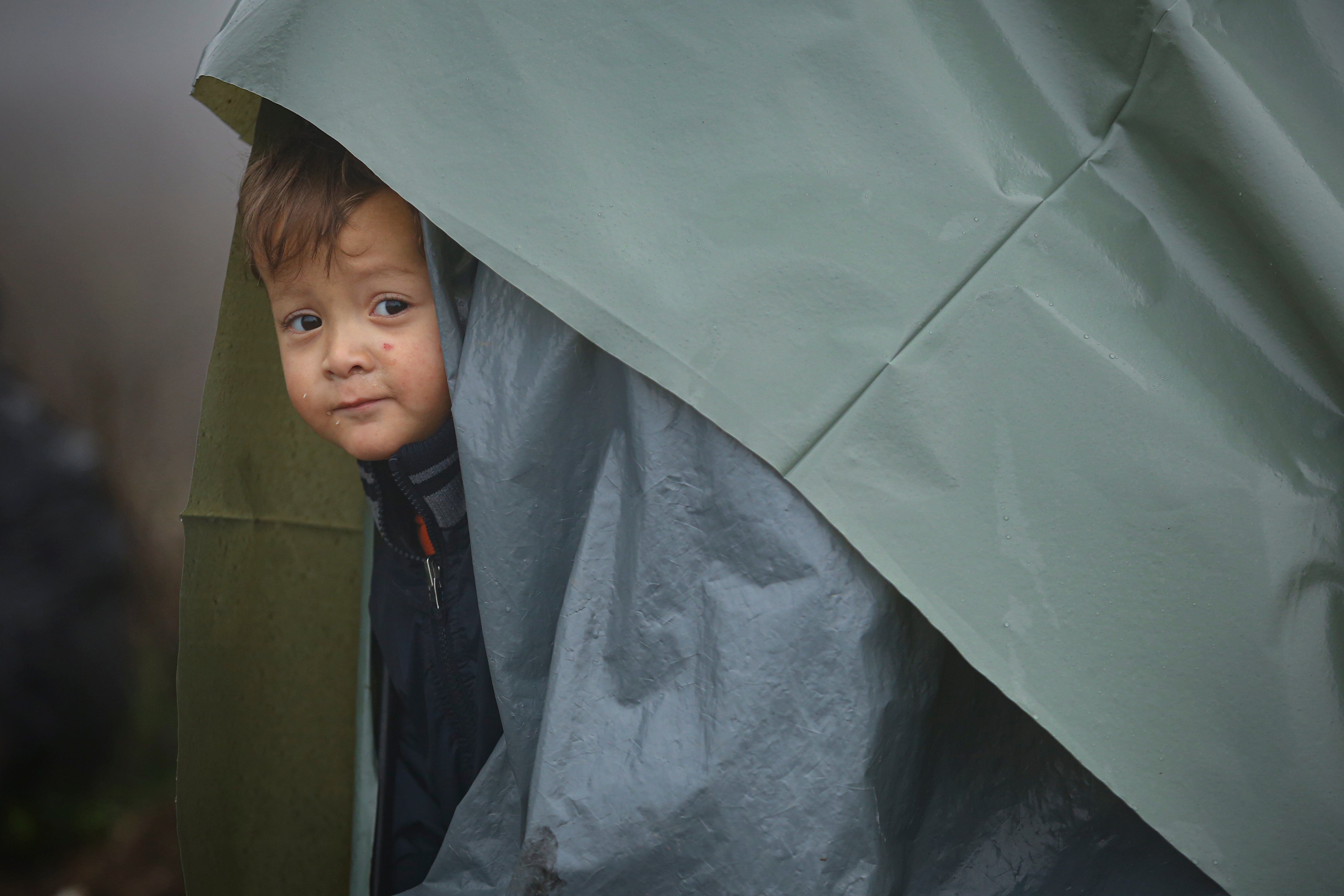AP PHOTOS: Concern grows over makeshift Bosnia migrant camp
Braving autumn cold and tough Croatian border police, hundreds of migrants with small children, babies and elderly people have set up a makeshift tent camp in northwest Bosnia as they wait for a chance to move toward Western Europe

Your support helps us to tell the story
From reproductive rights to climate change to Big Tech, The Independent is on the ground when the story is developing. Whether it's investigating the financials of Elon Musk's pro-Trump PAC or producing our latest documentary, 'The A Word', which shines a light on the American women fighting for reproductive rights, we know how important it is to parse out the facts from the messaging.
At such a critical moment in US history, we need reporters on the ground. Your donation allows us to keep sending journalists to speak to both sides of the story.
The Independent is trusted by Americans across the entire political spectrum. And unlike many other quality news outlets, we choose not to lock Americans out of our reporting and analysis with paywalls. We believe quality journalism should be available to everyone, paid for by those who can afford it.
Your support makes all the difference.Hundreds of migrants — including small children, babies and elderly people — have camped out in northwest Bosnia braving worsening weather and tough Croatian border police for a chance to head on towards Western Europe
With some of the shelters no more than sticks covered by nylon sheeting, the settlement sprawls over a muddy field near the town of Velika Kladusa, a few kilometers (miles) from the border with Croatia, a European Union member.
Locals say the camp has sprouted over the past few weeks. There's no running water, lavatories, showers or electricity, and a freezing Bosnian winter is approaching fast.
The migrants cope as best they can. They bring water in plastic containers, light fires for warmth and try to keep their tents tidy inside. Some men could be seen washing or shaving, hoping to keep clean in a sea of mud and dirt around them.
Nearby, others were chopping firewood as toddlers used sticks to draw on the ground. Some children played with plush animals or dolls, while a group of boys crouched over a game of marbles.
Aid workers say the migrants refuse to move into official, organized camps so they can keep as close to the Croatian border as possible. Already, many of the children are sick, they said.
Some of the people there have tried to illegally enter Croatia dozens of times only to be turned back by Croatian police, who recently were filmed beating migrants with batons and returning them to Bosnia.
Last week, Croatia admitted its police were in the video footage taken under a joint effort spearheaded by the non-profit group Lighthouse Reports. Three officers have been suspended over what officials insist was an isolated incident. Croatia had repeatedly denied similar accusations in the past.
Camp resident Mohammad Romal, from Afghanistan, said he, too, was beaten by police when he was caught with a group of other migrants deep inside Croatia — heading for Italy and, ultimately, France. He said the police took their belongings and drove them back to Bosnia.
“You can’t talk to them, you can’t say ‘why you are beating us, what is the reason?’” he said.
Romal's determination to build a better life for himself is shared by scores of others who fled violence and poverty in the Middle East, Africa or Asia. Thousands remain stuck in the Balkans, desperate to move on towards Europe's prosperous heartland, while many more risk their lives daily crossing the Mediterranean.
People camping near Velika Kladusa say they moved there because official camps are not close enough to the border, and they don't have enough money to pay for transport each time they try to enter Croatia. Migrants often pay small fortunes to people smugglers to be spirited across borders.
Enver Hafuric, from the SOS aid group — which was distributing medical supplies and warm meals — said appeals for parents living in the field to bring their children to official camps have failed.
“They want to be closer to the border, they want to go (away) from here, they want to go to the countries of the European Union,” he said.
___
Follow AP’s global migration coverage at https://apnews.com/hub/migration